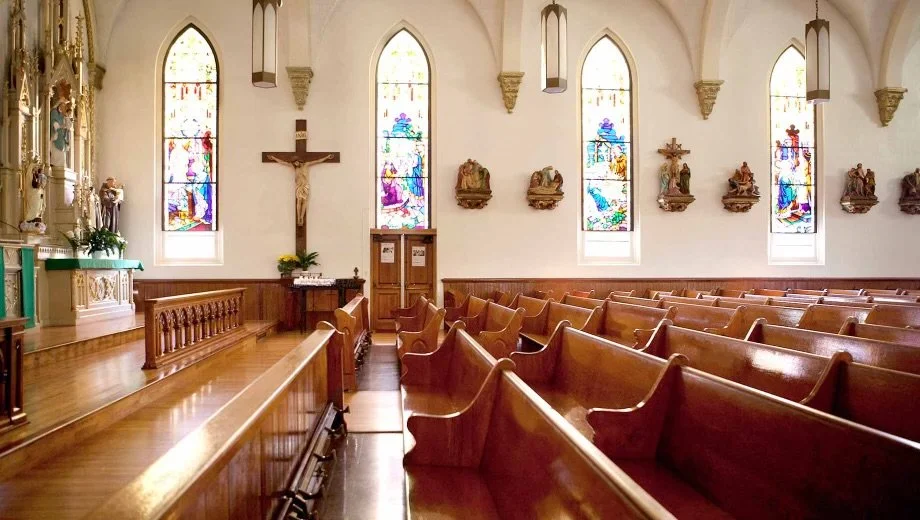Young Peoples Growing Disaffiliation with Religion
I am not a religious person. Besides the odd existential thoughts of the afterlife and the universe where, I question my spiritual beliefs, which never last long. I guess that makes me agnostic - my family also aren’t overly religious.
My grandad was a minister in the Church of Ireland but holds progressive opinions and is incredibly open to different views and perspectives. Moral and political discussions with him are always insightful, from chats about abortion to conflicts, he is always up to listen. I was never forced to go to church or to pray before meals. I have found that many of the people I surround myself with hold similar religious views, whether they come from a religious family or not. This makes me wonder… why have many young people become so disaffiliated with religion?
A 2018 study by Pew Research Centre shows that adults under 40 are ‘less likely to say that religion is very important in their lives’. Before, religion played a larger role in people’s everyday lives. It was situated at the centre of society, both as a source of community and as a provider of education and welfare. But today, as we are being exposed to more and more scientific discoveries and information the role of religion in society is becoming increasingly insignificant. Endless information on scientific theories such as evolution challenges those who interpret religious texts literally. From this vast amount of information, young people are becoming more and more sceptical, with many preferring empirical evidence over faith. Thus, many young people are moving away from religion.
It is important also to note the growing influence of social media in the disaffiliation of young people from religion. I’m sure there are thousands of subreddits and TikTok comment sections that facilitate (not always the most eloquent) debates and discussions on religion. From discussions between those of the same faith, those of different faiths, or believers and non-believers, there is no limit. These discussions not only expose people to differing views on religion but also promote critical thinking and a questioning of their own faith.
Social media also facilitates criticism of religion by providing a platform to expose scandals such as the Catholic abuse scandals, corruption in the church such as the exposure of growing financial fraud within numerous churches, and religious hypocrisies such as the news story of evangelical pastor Ted Haggard condemning homosexuality only to then face sexual assault allegations from two men. All this information is readily available to young people and has resulted in the mass exodus of young people from organised religion.
Young people are often led to feel alienated by religious institutions. At a time when we are increasingly able to express ourselves freely - to be queer, to go against traditional gender roles - it can be hard for young people to fully commit to religion when it doesn't fully support their self-expression. While not everyone who partakes in these religious groups follows these outdated views, it is important to note the facts. However, maybe real change can only come within. Sure, many religious leaders have taken on progressive stances as a means to integrate into modern societies. But... when certain religions hold conservative and outdated views on LGBTQ+ rights, reproductive rights, and gender roles, many of their followers will hold on to these views, resulting in religious hate crimes and discrimination from those in the church. Because of this, young people are apprehensive to follow such religions. They view religion as incompatible with their progressive views, as restrictive and oppressive, rather than as a source of true moral guidance. This certainly rings true for me. I have always questioned the ability to, say, have a gay friend but also subscribe to a religion that doesn't fully accept homosexuality. Why would I want to be part of a religion that isn't accepting of those closest to me?
From this, young people are increasingly calling for a greater separation of church and state to prevent this discrimination from entering the political realm. Religion should not play an overarching role in the politics of a country, especially as societies are becoming more diverse. Northern Ireland, my home country, is particularly notorious for entangling issues of politics and religion until they are no longer separable. As a deeply Christian country, we seem to constantly be 20 years behind the rest of the UK (perfectly demonstrated by the fact that same-sex marriage and abortion weren’t legalised until 2019). Sectarian divides between Protestantism (traditionally associated with unionism) and Catholicism (traditionally associated with Irish nationalism) are rife despite strides towards unity. This divide, mixed with the history of conflict between the two religious sects, has facilitated the rise of dominant political parties that are deeply entwined with religion. The two main political parties (the unionist Democratic Unionist Party and nationalist Sinn Fein) hold significantly different views on issues ranging from politics to moral stances. Sinn Fein’s promotion of LGBTQ+ rights and their support of abortion situates them as the more politically progressive party to their conservative DUP counterparts. Yet, how much of this is genuine? As what the Democratic Unionist Party says is white, you can bet Sinn Fein will say it's black.
The entanglement between these parties' political and religious views can appear to some young people as a tool for political manipulation rather than a source of moral guidance for the community. Many young people are fed up with this - viewing religious institutions as perpetuating ongoing divisions in Northern Ireland. Young people's disaffiliation from religion due to its politicisation is not specific to Northern Ireland - it is just heightened there by the severe divisions between the two dominant political parties and the history of conflict.
Overall, understanding how new scientific discoveries and the rise of information, social media platforms, and the politicisation of religion are important. These help us gain some sort of idea as to why more and more young people are distancing themselves from religion. This is not in-depth and doesn't provide a straight answer because there isn't one.
There are a multitude of reasons for this phenomenon, and the reasons for each person moving away from religion are individual to them.

